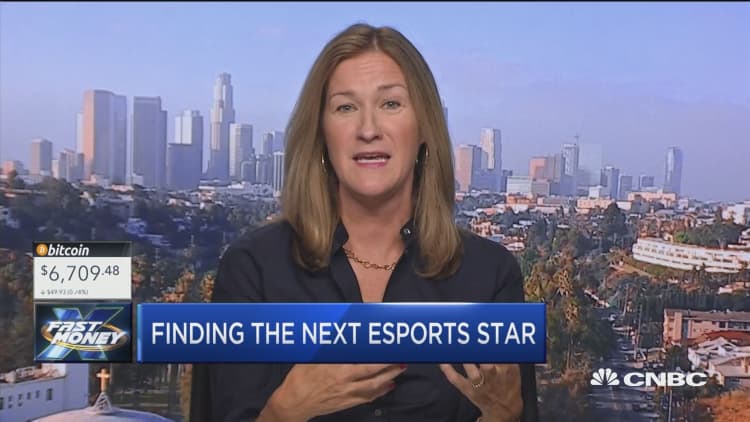DHL is sponsoring esports organizer ESL (Electronic Sports League) to reach younger consumers and encourage people to build an emotional attachment with the brand.
Companies often back sports events in the hope that some of the fun of the occasion will rub off on them. In DHL's case, partnering with ESL aims to make people associate positive feelings with what is, after all, a functional company where people will choose the cheapest delivery option.
"We're bringing parcels and pieces from A to B and nothing else. And in the end, it is really the emotional connection we need to make," Arjan Sissing, DHL's senior vice president, corporate global brand marketing, told CNBC on the phone.
It's the elusive millennial group that DHL is targeting with its ESL partnership. "When you really see the whole growth of esports in connection to the old, let's call it 'classical' platforms, for us it is a really nice fit, in order to not only get younger but also different target groups," Sissing said.

DHL did not detail how much it paid for the deal or its length, but Sissing said the company looks for "trustful longevity" in its sponsorships.
Around 380 million people around the world will watch esports in 2018, figures from research company Newzoo show, and it is worth $130 billion a year, according to Mirabaud Securities analyst Neil Campling.
Esports' global audience is 68 percent male, but that isn't the reason DHL chose it. "I would absolutely promote an even stronger growth of the female part of the audience. So, we do not do it for targeting males. We do it for the sake of size, for the sake of global coverage," Sissing told CNBC.
"The same is true for more classic (sporting) things at the large scale. When we look at rugby, for example, when you look at soccer, when you look at Formula One, predominantly also the audience there are male."
Sissing said that the company is keen to find mass audiences that include more women.
"If there is another possibility or platform, which has a global coverage, which has an impact as (much as) esport currently has, which has a female bias, we are super happy to look into that. Give me one," he said.
As well as competing in a commodity market dominated by UPS, Fedex and DHL, delivery companies also have newer rivals such as Amazon, which ordered 20,000 delivery vans from Mercedes-Benz last month, adding to the 5,000 it already has. DHL, of course, delivers parcels for Amazon, in a relationship that Sissing said was "stretching and lively," and that neither party was afraid of competition.
Sponsorship deals overall are set to increase by 4.9 percent to $65.8 billion this year, but only 19 percent of sponsorship professionals say they can prove it leads to sales, according to data from the World Advertising Research Center (WARC) and agency MKTG.
But putting a logo on a sports team's shirt or advertising on stadium hoardings can improve people's recognition of that company, with 73 percent of people answering a survey by MKTG saying "brand awareness" is the main point of sponsorship.
For now, DHL will measure elements such as recall of the brand and how engaged people are with it, as well as how much they like it. This is part of Sissing's aim to improve the emotional connection with the company in a sector that is seen as a commodity, although the company is "laying the links" with its commercial divisions. DHL has run local promotions such as a contest to win tickets to the ESL One contest in New York City at the weekend, where entrants had to post a picture of a branded truck on social media.

